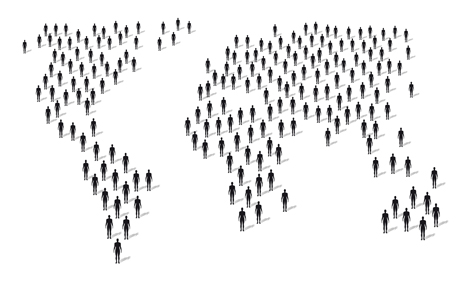We all now take advantage of open source software. For our work in web development, it helps make many formerly complex and expensive tasks faster, easier, and less expensive. We tend to take this for granted, but the meaning of the open source systems that have germinated and are now prospering on the web is still evolving. We do not know how far these systems can take us. What are their limits? What can be done with them once harnessed in new ways for good?
The story of Linux is a kind of inspiration. One big follow up question is: What’s next? Can something like the Coalition of the Willing achieve its truly grand objectives—in this case saving the world from itself? (For a link requiring less bandwidth click here.)
It’s a big leap, but this project is interesting in a few ways. First, this group was able to create an animated video using a collaborative, multi-author methodology borrowed from the open source model—and it’s actually pretty good. Second, the project is interesting because we know open source systems actually can work, and we are living in a time when they are beginning to take a much more powerful position in the online universe.
Can swarm theory, applied to an issue of first order magnitude like global warming, successfully change things so as to fundamentally restructure the way the entire world now operates? That’s a big and very interesting question.
Change is very painful, and who is ready for the prospect of pain when there is so much pleasure so easily had right in front of us?
Regarding the particular issue they intend to address—global warming—the most important element is still, to my view, missing, and that is a broadly acknowledged sense of genuine urgency. The signs, however real and verifiable, are not palpable enough, immediate enough to get people ready and willing for the next revolution. We are just too darn happy with the way things are. Change is very painful, and who is ready for the prospect of pain when there is so much pleasure so easily had right in front of us? Who will make the choice to give up some of what we’ve got just to save the world when, as an alternative, all we have to do is nothing. It is hard—and contrary to our nature—to force change in the absence of the building we are in actually being on fire AND, in many cases, the flames licking at our cubicle wall.
There are many valiant efforts on many fronts working to make the world better. And one of the interesting things about them is—even if I look at our pool of nonprofit clients—that despite obvious connections through which they could be contributing their own unique passion to broader change, it’s not happening. They are not connected in any meaningful way. Each organization must, out of necessity, struggle to do what good it can without the benefit of a practical means to cooperate or to find a way to compile their efforts into a swarm. It seems that almost all of those doing good in the world are having to fight too hard to protect their own little green patch of ground. There is nothing left over to contribute to a larger cause. It’s just too hard because there exists no effective mechanism through which they can collaborate. Maybe I’m wrong, but when it comes to innovation on behalf of the public good, this fragmented state of affairs seems to still be fundamental to the nature of the way things are. Inertia continues to rule.
It is not necessarily the way things have to be. That’s why this project and this concept is interesting. To my knowledge, being cynical never constructively made the world a better place, but finding the path to this kind of world-changing solution cannot be easy. Wikipedia itself is having growing pains and was recently reported to have lost some portion of its volunteer support, but it is still, warts and all, pioneering practical methods for crowd sourcing. These are tools that we all stand potentially to benefit from, because this mechanism, when applied to a problem like global warming, could become very powerful indeed.
To my knowledge, being cynical never constructively made the world a better place, but finding the path to this kind of world-changing solution cannot be easy.
Also blocking the way forward on this grand scale is the necessity that we get larger organizations and governments involved. These groups are not very easy to get swarming. They have strong built-up institutional interests, many of which are prone to be focused on self-preservation, and this works to divert energy from what they could contribute to the greater good. This is a significant challenge to overcome because it is structural and entrenched. But what if you COULD build a system that would work for individuals, organizations and governments? This is certainly a worthy matter for people’s time and attention, and I applaud those behind Coalition of the Willing for making an attempt to devise structure for this and for promoting it.
Image courtesy of iStock



Ask for help.
We are kind, thorough and ready when you are. You just need to ask.